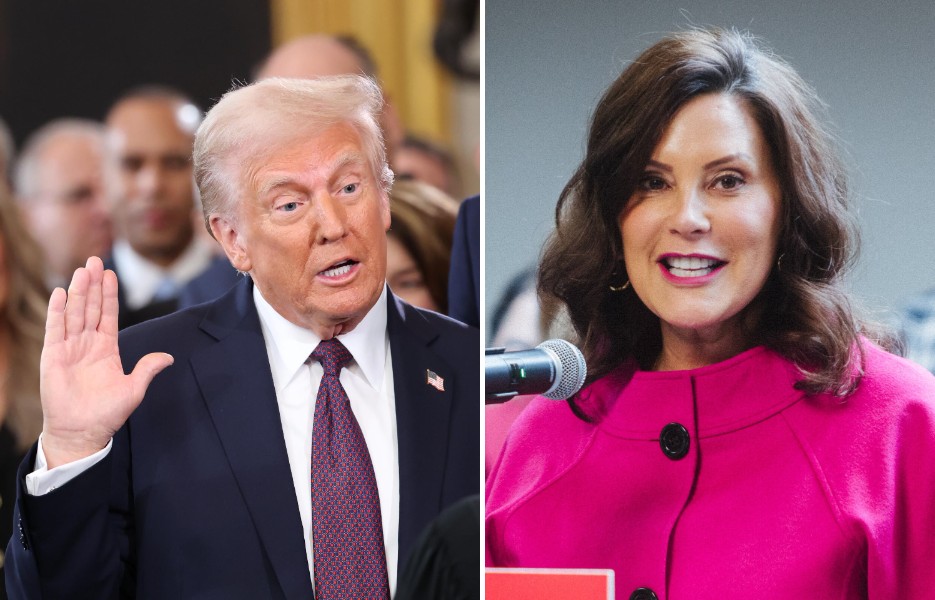
In a shocking turn of events, former President Donald Trump has hinted at potentially pardoning individuals convicted of conspiring to kidnap Michigan Governor Gretchen Whitmer, dismissing their actions as mere drunken foolishness. This startling announcement comes after Trump was questioned about the convictions of members of the Wolverine Watchmen militia, who were sentenced to lengthy prison terms for their roles in a violent plot aimed at inciting a civil war over pandemic restrictions.
During a recent interview, Trump stated, “I will take a look at it,” referring to the request for pardons and implying that the convicted plotters were victims of a “railroad job.” This characterization starkly contrasts with the grave nature of their crimes, which included conducting surveillance on Whitmer’s vacation home and planning to use explosives in their attempted kidnapping. Federal prosecutors detailed the violent intentions of these men, who openly discussed killing law enforcement while executing their plans.
Trump’s comments have ignited fierce backlash, as many see this as a dangerous minimization of domestic terrorism. The former president, who previously clashed with Whitmer and even called for her to be “liberated,” now appears poised to reward those who threatened her life. Critics argue that his cavalier attitude toward such serious offenses reflects a broader troubling trend, where political loyalty supersedes accountability.
In his past presidency, Trump’s pardons often favored political allies and individuals involved in violent acts, raising concerns about the integrity of the justice system. As the nation grapples with the implications of Trump’s remarks, the specter of legitimizing domestic terrorism looms large, leaving many to wonder where the boundaries of justice truly lie. This developing story has the potential to reshape the political landscape, as the urgency of Trump’s pardon considerations reverberates across the country.